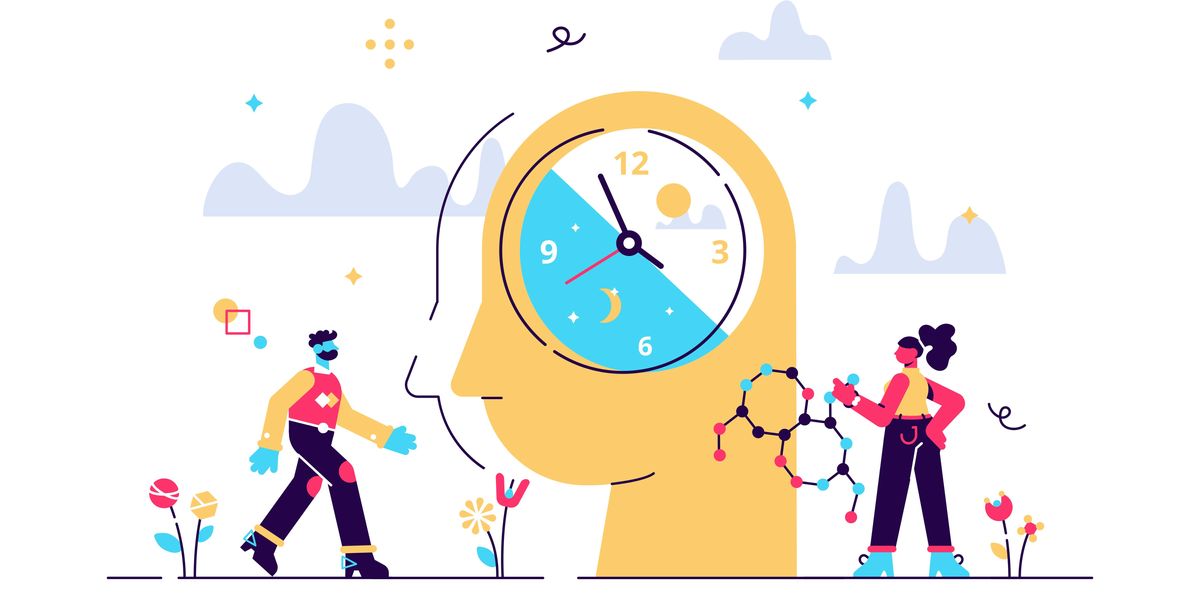Master Your Inner Clock for Peak Performance
Whether you’re naturally peppy in the morning or primed to burn the midnight oil, your internal body clock determines what time of day your body performs at its best. With some effort, you can adjust that cycle so you’ll peak when you want to.
What Is Circadian Rhythm?
Think of your circadian rhythm as a 24-hour master clock. “It synchronizes all the systems in your body and affects physical and mental performance,” says Dr. Renske Lok, a postdoctoral research fellow in psychiatry and behavioral sciences at Stanford University. It also determines your innate chronotype—whether you feel most energetic in the morning or in the evening.
This rhythm is regulated by your brain’s production of melatonin, a hormone that’s governed by light exposure. “When the sun starts to go down, our brain surges in melatonin production, preparing us to sleep in a few hours,” says Dr. W. Christopher Winter, author of The Sleep Solution: Why Your Sleep Is Broken and How to Fix It. Melatonin production peaks overnight and then decreases by morning; bright light keeps the signal turned off so that you stay awake during the day. Morning people are triggered earlier in the 24-hour cycle, whereas evening types are triggered later, Lok says.
Set Your Cycle
In a 2020 study of Olympic swimmers, Lok and her co-researchers showed that, on average, performance peaks at roughly 5 pm. Their finding provides dancers with a baseline for manipulating their own circadian rhythms.
“You can trick your body into thinking that the 8 pm curtain time is actually 5 pm,” she says. To achieve the shift, you can change your sleep/wake cycle and light exposure to manipulate your melatonin production.
As with jet lag, it takes time to adjust, so start your strategic 24-hour cycle well before your first evening performances. A good rule of thumb is one day per hour. Natural light is best, but artificial light can be an efficient substitute, and blue-light glasses can be helpful.
Rather than hanging around in the dark backstage, expose yourself to bright light for as long as possible before your stage time. This prevents your brain from triggering melatonin, and sleepiness, too early. After a show, keep the lights low or use blue-blocking glasses to give your brain the “sundown” signal.
Ensure that you get ample rest by minimizing early-morning light (try blackout curtains) so you can sleep later. Then take in as much bright light as possible when you get up. Take advantage of daytime light to complete the cycle, a technique that Winter has used with teams like the Los Angeles Dodgers and the Chicago Bulls. For example, when rehearsals take place on a dark stage, spend your breaks outdoors or in a bright room. “Let your brain know that even though you’ve been dancing in a dark environment, it’s one o’clock,” he says.
Skip the Supplements
“People think melatonin is a sleep aid, but it’s not—it’s a timing aid,” says Winter. In response to evening darkness, the brain starts to produce melatonin several hours before it wants the body to sleep. So if you take melatonin just before going to bed, “the brain thinks the sun is going down, but it’s 11 pm.” Lok adds that if the dose is too high, it can still be present the next day, making you sleepy. “Light is readily available, and it’s the best cue,” she says.
See the Light
Numerous eyewear companies sell glasses that block or produce blue-green light, the portion of the spectrum that interacts most with the retinas to affect melatonin levels. Use blue-light–blocking glasses when you want to cue your body to start melatonin production. Glasses that shine blue-green light into your eyes can help you get bright light when you have no access to ambient sunlight.
Keep a Regular Rhythm
Consistency is key. “Going to bed at different times, exercising at different times and being exposed to light or dark at different times disrupts our circadian rhythm significantly,” Winter says. That can result in fatigue, slower injury recovery and diminished performance. So stick to your schedule, even on off nights and during furlough weeks. “The best advice I can give is to maintain a steady signal to your circadian clock,” says Lok. “It’s healthy to be synchronized.”





